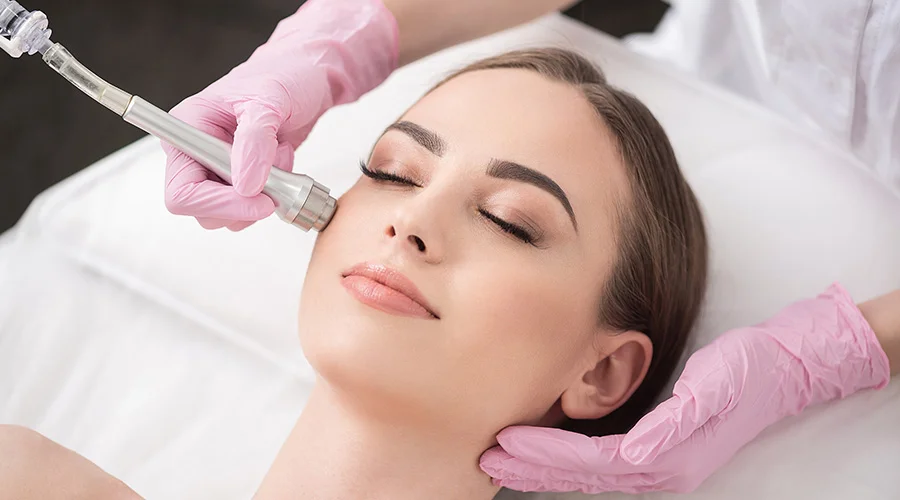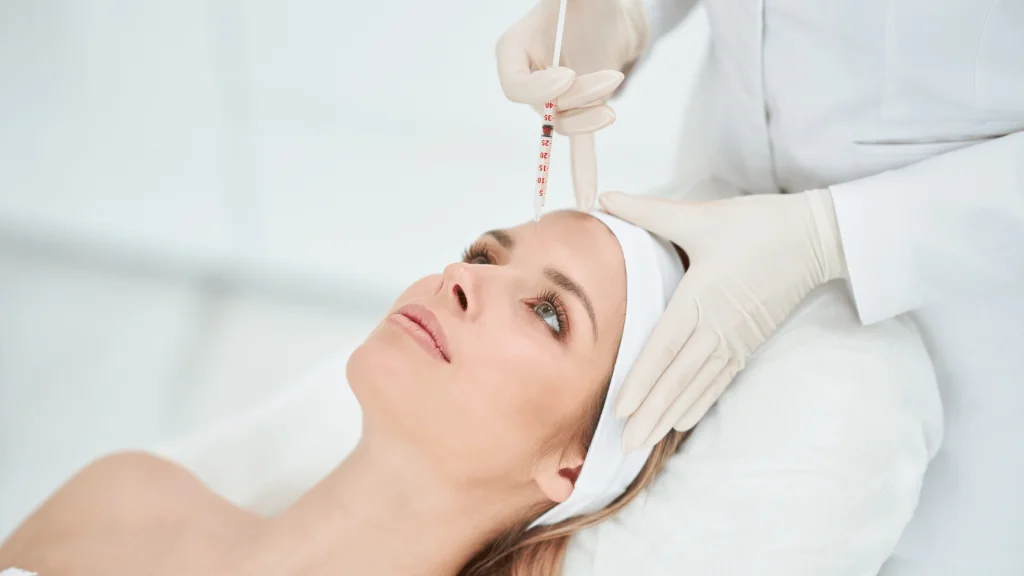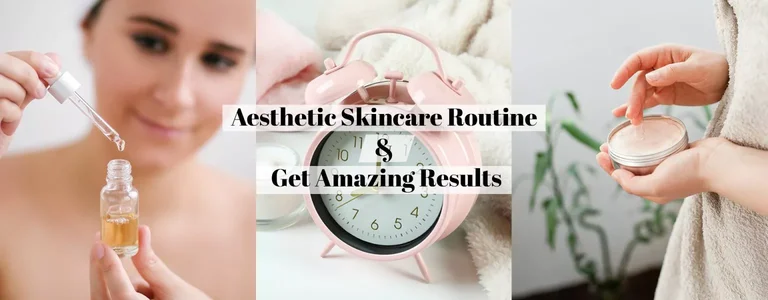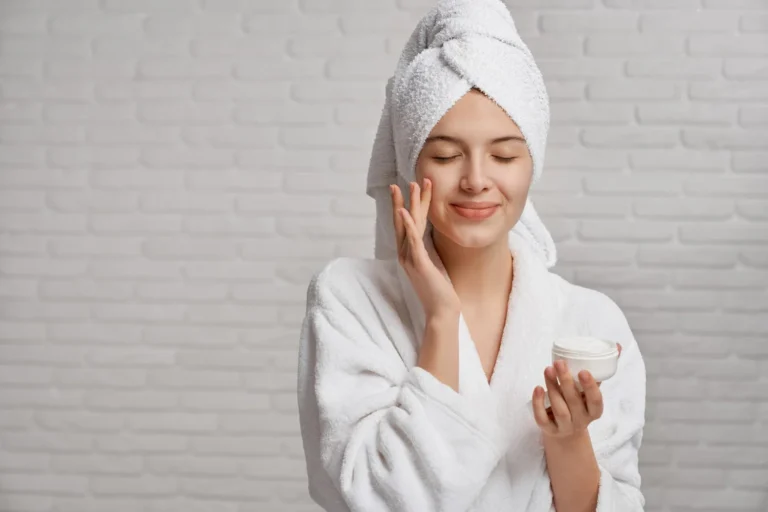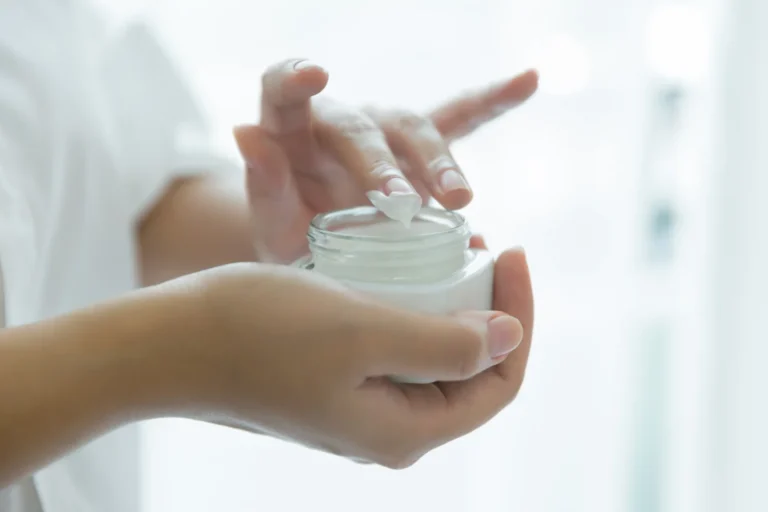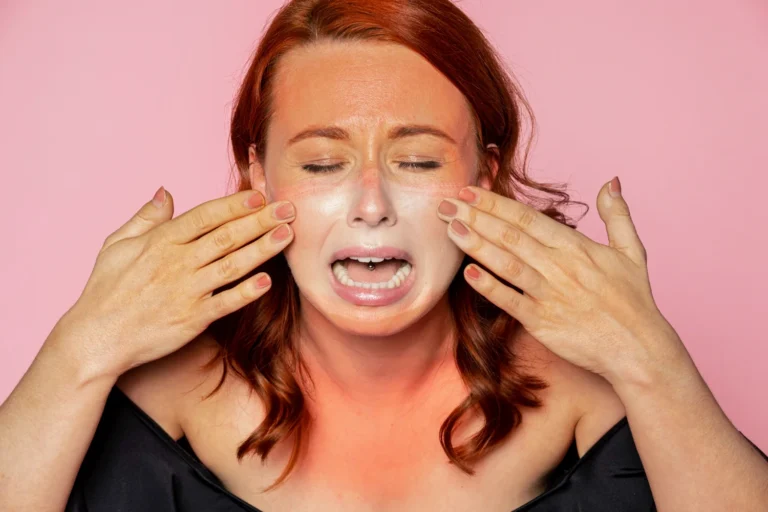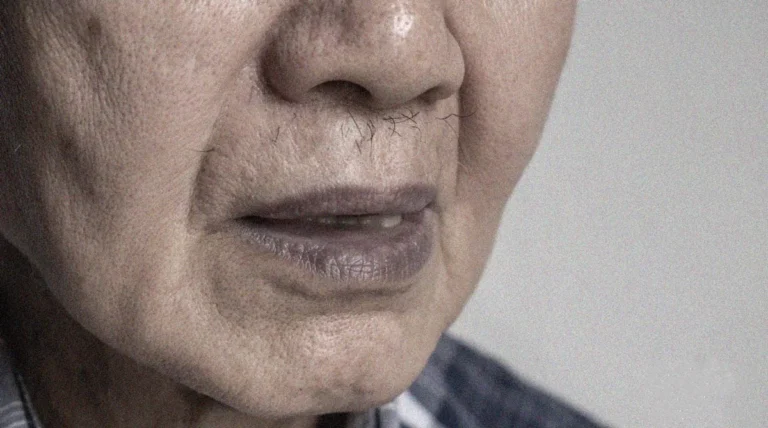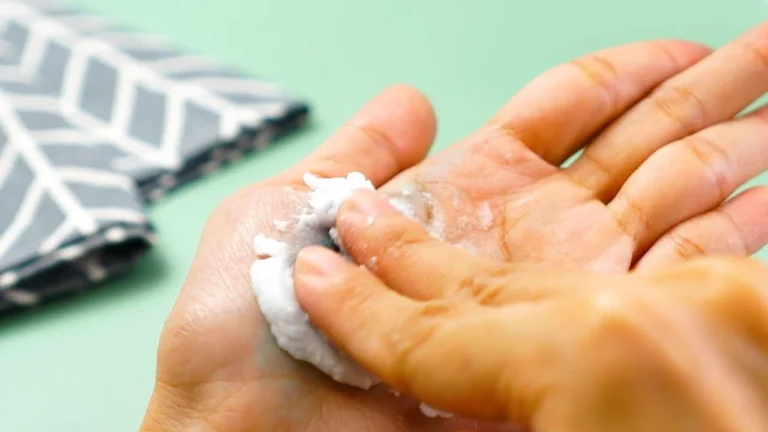The Art of Beauty: A Deep Dive into Aesthetic Skincare and Transformative Treatments!
Have you ever wondered what aesthetic skincare is and how it can help you achieve glowing, healthy, and youthful skin? Aesthetic skincare is more than just applying creams and serums to your face. It is a branch of cosmetic medicine that involves various procedures and treatments that aim to improve the appearance, texture, and function of your skin. Aesthetic skincare can address various skin concerns, such as aging, acne, pigmentation, scarring, and more. It can also enhance your natural beauty and boost your confidence.
But aesthetic skincare is not a one-size-fits-all solution. It requires a personalized and holistic approach that considers your skin type, condition, goals, lifestyle, and budget. It also requires a professional and qualified provider who can assess your skin and recommend the best options for you. In this article, we will explore some of the most popular and effective aesthetic skincare treatments and how they can benefit your skin. We will also give you some tips on how to choose the right provider and prepare for your treatments. Let’s dive in!
What are the benefits of aesthetic skincare?
Aesthetic skincare can offer many benefits for your skin, depending on your needs and preferences. Some of the common benefits are:
- Improving skin quality and health: Aesthetic skincare can help you achieve smoother, firmer, brighter, and more even-toned skin. It can also improve your skin’s hydration, elasticity, and barrier function. Aesthetic skincare can also prevent and treat various skin issues, such as wrinkles, sagging, sun damage, acne, rosacea, and more.
- Enhancing natural beauty and features: Aesthetic skincare can help you accentuate your best features and balance your facial proportions. It can also help you create a more youthful and refreshed look. Aesthetic skincare can also correct some imperfections, such as scars, dark circles, enlarged pores, and more.
- Boosting confidence and self-esteem: Aesthetic skincare can help you feel more comfortable and confident in your own skin. It can also help you express your personality and style. Aesthetic skincare can also improve your mood and well-being, as well as your social and professional interactions.
What are some of the popular aesthetic skincare treatments?
Aesthetic skincare refers to cosmetic procedures that are designed to improve the texture of your skin without surgery. These procedures are typically performed by a licensed skincare professional or a board-certified dermatologist. Some of the aesthetic treatments that can help you achieve glowing skin are:
- Chemical peels: A chemical peel is a treatment that uses a solution of acids to exfoliate the top layer of your skin, revealing a smoother and brighter complexion. Chemical peels can help reduce the appearance of fine lines, wrinkles, sun damage, acne scars, and hyperpigmentation.
- Microdermabrasion: Microdermabrasion is a treatment that uses a device with tiny crystals or a diamond tip to gently sand away the dead skin cells, unclogging pores and stimulating collagen production. Microdermabrasion can help improve the texture and clarity of your skin, as well as reduce the appearance of enlarged pores, blackheads, and dullness.
- Microneedling: Microneedling is a treatment that uses a device with tiny needles to create micro-injuries on your skin, triggering your skin’s natural healing process and boosting collagen and elastin production. Microneedling can help improve the appearance of scars, stretch marks, wrinkles, sagging skin, and uneven skin tone.
- Laser resurfacing: Laser resurfacing is a treatment that uses a beam of light to vaporize damaged skin cells, stimulating the growth of new and healthy skin cells. Laser resurfacing can help treat various skin conditions, such as wrinkles, age spots, acne scars, rosacea, and melasma.
- Radiofrequency: Radiofrequency is a treatment that uses a device that emits radio waves to heat up the deeper layers of your skin, tightening and lifting your skin. Radiofrequency can help reduce the appearance of sagging skin, jowls, and a double chin.
- Ultrasound: Ultrasound is a treatment that uses a device that emits sound waves to penetrate the deeper layers of your skin, stimulating the production of collagen and elastin. Ultrasound can help lift and firm your skin, especially around the eyes, brows, cheeks, and neck.
- LED therapy: LED therapy is a treatment that uses a device that emits light of different wavelengths to target various skin concerns. LED therapy can help improve your skin’s health and appearance by reducing inflammation, killing bacteria, boosting circulation, and stimulating cellular activity.
These are just some of the aesthetic skincare treatments that can help you achieve radiant and youthful-looking skin. Depending on your skin type, condition, and goals, you can choose the best treatment for you or combine different treatments for optimal results. However, before you undergo any aesthetic skincare procedure, make sure to consult with a qualified professional who can assess your skin and recommend the most suitable and safe treatment for you.
How to Choose the Best Aesthetic Skincare Products?
Aesthetic skincare is not only about the treatments you get but also about the products you use. The products you apply to your skin can make a big difference in your skin’s appearance and health. However, with so many products available on the market, how do you choose the best ones for your skin? Here are some tips to help you:
- Know your skin type: The first step to choosing the best aesthetic skincare products is to know your skin type. Your skin type is determined by how much oil your skin produces, and it can be normal, dry, oily, combination, or sensitive. Knowing your skin type can help you choose the products that suit your skin’s needs and avoid the ones that can irritate or harm your skin.
- Know your skin concerns: The second step to choosing the best aesthetic skincare products is to know your skin concerns. Your skin concerns are the specific issues that you want to address, such as wrinkles, acne, dark spots, or redness. Knowing your skin concerns can help you choose the products that target your skin problems and deliver the results you want.
- Know your ingredients: The third step to choosing the best aesthetic skincare products is to know your ingredients. The ingredients are the substances that make up the products, and they can have different effects on your skin. Knowing your ingredients can help you choose the products that contain active and beneficial ingredients for your skin and avoid the ones that contain harmful or unnecessary ingredients for your skin.
Some of the ingredients that you should look for in aesthetic skincare products are:
- Antioxidants: Antioxidants are substances that protect your skin from free radical damage, which can cause aging, inflammation, and disease. Some of the antioxidants that you should look for in aesthetic skincare products are vitamin C, vitamin E, niacinamide, resveratrol, and green tea.
- Peptides: Peptides are chains of amino acids that stimulate your skin’s natural processes, such as collagen and elastin production, wound healing, and hydration. Some of the peptides that you should look for in aesthetic skincare products are matrixyl, argireline, copper peptides, and palmitoyl pentapeptide.
- Acids: Acids are substances that exfoliate your skin, removing dead skin cells, unclogging pores, and improving skin texture and tone. Some of the acids that you should look for in aesthetic skincare products are glycolic acid, salicylic acid, lactic acid, and azelaic acid.
- Retinoids: Retinoids are derivatives of vitamin A that increase your skin’s cell turnover, reducing the appearance of wrinkles, fine lines, sun damage, and acne. Some of the retinoids that you should look for in aesthetic skincare products are retinol, retinaldehyde, and tretinoin.
- Hyaluronic acid: Hyaluronic acid is a substance that attracts and retains water in your skin, keeping it plump and hydrated. Hyaluronic acid can also help reduce the appearance of wrinkles, fine lines, and sagging skin.
Some of the ingredients that you should avoid in aesthetic skincare products are:
- Parabens: Parabens are preservatives that prevent the growth of bacteria and fungi in cosmetic products. However, parabens can also disrupt your hormonal balance and have been linked to breast cancer and reproductive issues.
- Sulfates: Sulfates are detergents that create foam and lather in cleansing products. However, sulfates can also strip your skin of its natural oils, causing dryness, irritation, and inflammation.
- Fragrances: Fragrances are substances that add scent to cosmetic products. However, fragrances can also cause allergic reactions, headaches, and respiratory problems. Fragrances can also contain phthalates, which are chemicals that can interfere with your endocrine system.
- Alcohol: Alcohol is a substance that can act as a solvent, astringent, or preservative in cosmetic products. However, alcohol can also dry out your skin, damage your skin barrier, and increase your skin’s sensitivity.
How to Choose the Best Aesthetic Skincare Treatments?
Aesthetic skincare treatments can offer amazing results for your skin, but they also require careful consideration and consultation. Not all treatments are suitable for everyone, and some may have risks or side effects. Here are some tips to help you choose the best aesthetic skincare treatments for your skin:
- Know your goals: The first step to choosing the best aesthetic skincare treatments is to know your goals. What are you trying to achieve with your skin? Do you want to smooth out wrinkles, fade dark spots, clear up acne, or tighten sagging skin? Knowing your goals can help you narrow down your options and find treatments that match your expectations.
- Know your budget: The second step to choosing the best aesthetic skincare treatments is to know your budget. How much are you willing to spend on your skin? Aesthetic skincare treatments can vary in price, depending on the type, frequency, and provider of the treatment. Some treatments may be covered by insurance, while others may not. Knowing your budget can help you choose the treatments that fit your financial situation and avoid overspending or underinvesting.
- Know your skin type and condition: The third step to choosing the best aesthetic skincare treatments is to know your skin type and condition. Your skin type and condition can affect how your skin responds to different treatments and what results you can expect. Some treatments may be more effective or suitable for certain skin types or conditions than others. For example, chemical peels may be more beneficial for oily or acne-prone skin, while laser resurfacing may be more suitable for dry or sun-damaged skin. Knowing your skin type and condition can help you choose treatments that are safe and appropriate for your skin.
- Know your provider: The fourth step to choosing the best aesthetic skincare treatments is to know your provider. Who will perform the treatment on your skin? Is it a licensed skincare professional, a board-certified dermatologist, or a trained technician? What are their qualifications, experience, and reputation? How do they communicate with you and answer your questions? Knowing your provider can help you choose the treatments that are performed by skilled and trustworthy professionals who can ensure your safety and satisfaction.
These are some tips to help you choose the best aesthetic skincare treatments for your skin. However, before you decide on any treatment, make sure to consult with your provider and do your own research. Ask about the benefits, risks, costs, and expectations of the treatment, and compare different options and opinions. Remember, aesthetic skincare treatments are not one-size-fits-all, and what works for someone else may not work for you. The best treatment for your skin is the one that meets your needs and goals and that you feel comfortable and confident with.
How to Build an Aesthetic Skincare Routine?
An aesthetic skincare routine is a set of steps that you follow on a daily basis to take care of your skin and achieve your skin goals. A good aesthetic skincare routine should be customized to your skin type, concerns, and preferences and should include the following steps:
- Cleansing: Cleansing is the first and most important step of any skincare routine. It removes dirt, oil, makeup, and impurities from your skin, preparing it for the next steps. You should cleanse your skin twice a day, in the morning and at night, using a gentle cleanser that suits your skin type. Avoid using harsh or abrasive cleansers that can strip your skin of its natural moisture and cause irritation or inflammation.
- Toning: Toning is the second step of an aesthetic skincare routine. It balances your skin’s pH level, restores your skin’s moisture, and prepares your skin for better absorption of the products that follow. You should tone your skin after cleansing, using a toner that matches your skin type and concerns. Look for toners that contain hydrating, soothing, or exfoliating ingredients, depending on your needs. Avoid using toners that contain alcohol, fragrances, or artificial colors, as they can dry out or irritate your skin.
- Serum: Serum is the third step of an aesthetic skincare routine. It delivers a high concentration of active ingredients to your skin, targeting specific skin issues such as aging, pigmentation, acne, or sensitivity. You should apply a serum after toning, using a few drops and gently patting it into your skin. You can use different serums for different purposes, such as a vitamin C serum for brightening, a retinol serum for anti-aging, or a hyaluronic acid serum for hydrating. However, do not use too many serums at once, as they can overload your skin and cause adverse reactions.
- Moisturizer: Moisturizer is the fourth step of an aesthetic skincare routine. It seals in the moisture and nutrients from the previous steps and protects your skin from external factors such as weather, pollution, or stress. You should moisturize your skin after applying serum, using a cream, lotion, or gel that fits your skin type and climate. Look for moisturizers that contain emollients, humectants, or occlusives, depending on your skin’s needs. Avoid using moisturizers that are too heavy or greasy, as they can clog your pores and cause breakouts.
- Sunscreen: Sunscreen is the fifth and final step of an aesthetic skincare routine. It shields your skin from the harmful effects of the sun’s rays, such as premature aging, sunburn, hyperpigmentation, and skin cancer. You should apply sunscreen every morning, as the last step of your routine, using a broad-spectrum sunscreen with at least SPF 30. Reapply sunscreen every two hours, or more frequently if you sweat or swim. Look for sunscreens that are lightweight, non-comedogenic, and water-resistant and that suit your skin type and tone. Avoid using sunscreens that are sticky, oily, or leave a white cast on your skin.
- Facial Masks: Facial masks offer a spa-like experience at home, delivering a boost of nourishment and pampering. Whether you opt for sheet masks, clay masks, or overnight masks, these treatments can address various concerns. Choose masks with ingredients like aloe vera, chamomile, or hyaluronic acid for a soothing and hydrating experience. Indulge in a mask session at least once a week to witness a visible transformation in your skin’s texture and radiance.
These are the basic steps of an aesthetic skincare routine that you can follow to keep your skin healthy and beautiful. However, you can also add or modify some steps, depending on your personal preferences and goals. For example, you can use an eye cream to address the delicate area around your eyes, a mask to pamper your skin once or twice a week, or an exfoliator to remove dead skin cells and improve your skin texture. The key is to find the products and methods that work best for you and to be consistent and gentle with your routine. Remember, aesthetic skincare is not only about the products you use but also about the way you use them.
Tailoring Your Routine to Your Skin’s Unique Needs
Every skin is different, and recognizing your skin type is paramount to crafting an effective aesthetic skincare routine. Whether you have oily, dry, combination, or sensitive skin, understanding its unique needs allows you to choose products that cater specifically to your concerns. A personalized approach ensures you’re not just following trends but genuinely nurturing your skin.
Dispelling Skincare Myths
The world of skincare is rife with myths, often causing confusion and misinformation. Let’s debunk some of the most common myths to help you make informed decisions about your aesthetic skincare journey.
Myth #1: More Products Equal Better Results
While it’s tempting to amass a collection of skincare products, more isn’t necessarily better. Overloading your skin can lead to irritation and negate the benefits of your chosen products. Stick to a well-balanced routine with key essentials for a more effective and sustainable approach.
Myth #2: Natural Ingredients Always Trump Synthetic
While the allure of natural ingredients is undeniable, not all synthetic components are harmful. Science-backed formulations often include synthetic compounds that mimic or enhance the effects of natural ingredients. Focus on the efficacy of the product rather than dismissing it solely based on its origin.
Myth #3: Skincare Is Solely for Women
Skincare is a universal concept that transcends gender. Men can also benefit from a well-crafted skincare routine tailored to their specific needs. The key is to understand your skin type and choose products that address your concerns, whether it’s razor burn, dryness, or signs of aging.
Myth #4: Sunscreen Is Only Necessary in Summer
Sunscreen is a year-round necessity. UV rays can penetrate clouds, causing damage even on cloudy days. Consistent use of sunscreen protects your skin from premature aging and reduces the risk of skin cancer. Make it a non-negotiable step in your daily routine, regardless of the season.
Cultivating Healthy Habits: Lifestyle Factors
Aesthetic skincare goes beyond topical treatments; it involves lifestyle factors that contribute to your skin’s well-being. Here are some habits to incorporate into your daily life for a radiant and healthy complexion.
Nutrient-Rich Diet: Fueling Radiance from Within
Your diet reflects on your skin. A diet rich in antioxidants, vitamins, and minerals can promote a radiant complexion from within. Include a variety of fruits, vegetables, whole grains, and lean proteins in your diet to provide your skin with the essential nutrients it needs to thrive.
Hydration: The Key to Plump, Supple Skin
Water is your skin’s best friend. Staying hydrated not only benefits your overall health but also contributes to the plumpness and elasticity of your skin. Aim to drink at least eight glasses of water a day, and consider incorporating hydrating foods like watermelon and cucumber into your diet.
Quality Sleep: Rejuvenation During Rest
Quality sleep is crucial for skin repair and renewal. During deep sleep, your body releases growth hormones that stimulate cell turnover, leading to a refreshed and rejuvenated complexion. Aim for 7-9 hours of uninterrupted sleep each night for optimal skin health.
Stress Management: A Calm Mind Reflects in Glowing Skin
Stress can impact your skin, leading to breakouts, inflammation, and premature aging. Incorporate stress-management techniques such as meditation, deep breathing exercises, or yoga into your routine to keep your mind calm and your skin glowing.
Exercise: Enhancing Circulation for a Healthy Glow
Regular exercise benefits not only your overall health but also enhances your skin’s radiance. Physical activity increases blood flow, delivering oxygen and nutrients to your skin cells and promoting a healthy complexion. Aim for at least 30 minutes of moderate exercise most days of the week.
Conclusion
Aesthetic skincare is a wonderful way to improve your skin’s appearance, health, and function. It can also enhance your natural beauty and boost your confidence. However, aesthetic skincare is not a magic bullet. It requires a personalized and holistic approach that considers your skin type, condition, goals, lifestyle, and budget. It also requires a professional and qualified provider who can assess your skin and recommend the best options for you. And it requires proper preparation and aftercare to ensure a safe and satisfying experience.

